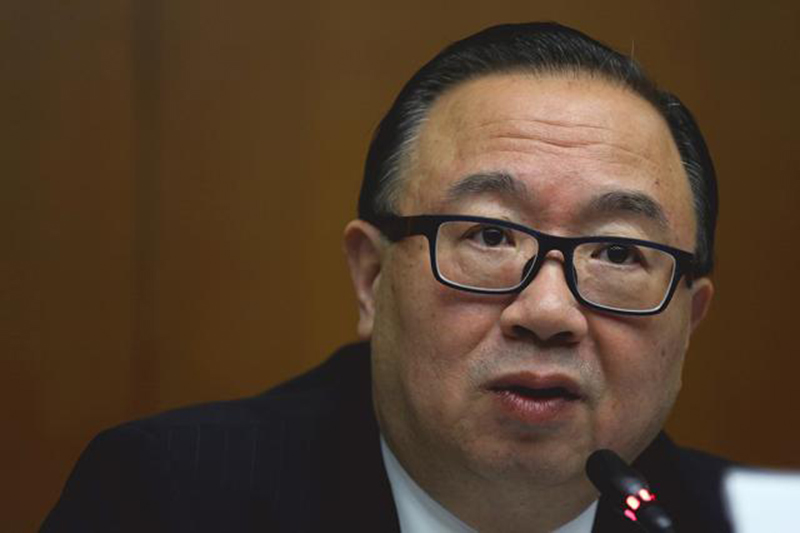Legislative Council President Andrew Leung has thrown out over a dozen proposed changes to the legislature’s rules raised by democrats, though he accepted a potentially unconstitutional amendment raised by a pro-Beijing lawmaker. The move contradicted legal advice he was previously given.
Leung approved 49 changes to be debated, of which 24 were from the pro-democracy camp, 24 were from pro-Beijing lawmaker Martin Liao, and one amendment was from Paul Tse – raised on behalf of the Committee on Rules of Procedures. Leung rejected 14 amendments from the pro-democracy camp and two from Liao.
In Liao’s proposed changes, a controversial amendment was raised to reduce the quorum needed for the “Committee of the whole council” stage from 35 to 20. He suggested that the stage – held in the main chamber – be considered a committee like other parts of the LegCo, so that the quorum requirement need not be applied.

The stage takes place after the second reading of a bill is passed. Since lawmakers can raise unlimited amendments and speak repeatedly during this stage, it has been used as a tool for filibustering over the years. However, if the quorum is reduced to 20, the democrats will unlikely be able to call for headcounts, since the pro-Beijing camp has 40 members.
For weeks, the pro-Beijing camp and democrats have been locked in a tit-for-tat war proposing changes to the legislature’s rules to their benefit. Since six democratically-elected lawmakers were disqualified by a court, the pro-democracy camp no longer has enough votes to block any proposals if they reach the voting stage. The changes may prevent democrats from forming select committees and using filibustering tactics.
Contradiction
Previously, Leung and his predecessor Jasper Tsang sought legal advice from senior counsel Ambrose Ho and Queen’s counsel Lord Lester. Both said the Committee of the whole council must follow the quorum requirement. Half of all its 70 members should be present, as stipulated by Article 75 of the Basic Law.
But the pro-Beijing camp also sought legal advice from Queen’s counsel Lord Pannick and barrister Jimmy Ma – a former LegCo legal adviser – who gave an opposing point of view.
On Monday, Leung said he put aside legal advice previously granted to the LegCo. After he sought advice from the legislature’s legal adviser, he said it was difficult to reach a conclusion.
“There is no adequate argument and information to show Martin Liao’s suggestion may, necessarily, be inconsistent with Basic Law,” Leung said, adding that he had looked at examples in the UK and US as well.

Leung said the LegCo must decide whether to accept Liao’s suggestion.
Asked why did the LegCo not seek further outside legal advice, Leung said: “Every lawyer has different opinions.”
“If there is some advice in which [Liao’s suggestion] may not violate the Basic Law, I must rule whether the suggestion should be accepted,” he said. He denied acting with any bias as the chamber’s president.
The amendments may be debated as soon as the December 6 meeting. Leung decided that the rule changes will be the first item on the agenda, and the pro-democracy camp may not use other items it submitted – namely, 17 new motions to summon officials to testify or censure pro-Beijing camp lawmakers – to stall the meeting.

‘Double standard’
Civic Party lawmaker Dennis Kwok criticised Leung as being unfair and “cherry picking” legal advice.
“Now he’s pushing aside all those legal opinions he has obtained before,” he said.
The party’s lawmaker Alvin Yeung also criticised it as being a “double standard.”
Yeung said that, since the pro-Beijing camp was happy to take away their power as lawmakers, “we have very little room to fight… but we will continue trying.”
